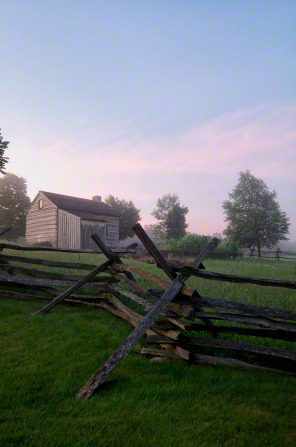
(Image from LDS Media Library)
From an unpublished manuscript:
An 1838 letter from Sally Parker, a former neighbor of Lucy Mack Smith, sheds interesting light on Mother Smith’s experiences. Lucy, the writer says, “was one of the finest of women—always helping them that stood in need.”
She told me the whole story. The plates was in the house and sometimes in the woods for eight months on account of people trying to get them. They had to hide them. Once they hid them under the hearth. They took up the brick and put them in and put the bricks back. The old lady told me this herself with tears in her eyes, and they ran down her cheeks too. . . . I asked her if she saw the plates. She said no, it was not for her to see them, but she hefted and handled them, and I believed all she said, for I lived by her eight months, and she was one of the best of women.”[1]
“If you should stick my flesh full of faggots [i.e., bundles of kindling wood],” she declared to a Presbyterian minister in Palmyra, “and even burn me at the stake, I would declare, as long as God should give me breath, that Joseph has got that Record, and that I know it to be true.”[2]
“He hath sent forth a revelation in these last days,” Lucy wrote to her brother and sister-in-law less than a year after the founding of the new Church, “and this revelation is called the book of Mormon.” Echoing the language of what would become the twentieth section of the Doctrine and Covenants, she affirmed to her extended family that her son Joseph “was visited by an holy Angel whose countenance was as lightening and whose garments were white above all whiteness.” Finally, she wrote, “I want you to think seriously of these things for they are the truths of the Living God. Please to accept this from your Sister Lucy Smith.” [3]
[1] Letter from Sally Parker to Francis Tufts, dated 26 August 1838. Cited in Anderson, Investigating the Book of Mormon Witnesses, 25.
[2] Cited by Bushman, Joseph Smith, 135. [Find better source.]
[3] Letter of Lucy Mack Smith to Solomon and Ester Hayward Mack, dated 6 January 1831 at Waterloo, New York. The letter is transcribed in Janiece Johnson, “’Give Up All and Follow Your Lord’: Testimony and Exhortation in Early Mormon Women’s Letters, 1831-1839,” BYU Studies 41/1 (2002): 77-107. Compare Doctrine and Covenants 20:6.
***
The late Christopher Hitchens would no doubt have found a way to press this into service as evidence for his claim that “religion poisons everything.” But normal human beings will have a harder time with that:
“Church Finding Ways to Increase Assistance to Those in Need”
***
“Book Review: ‘We’ll Sing and We’ll Shout: The Life and Times of W. W. Phelps'”










